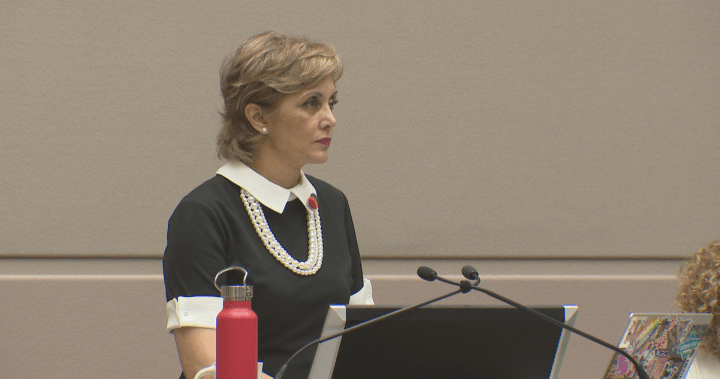The results of a recall petition against Calgary Mayor Jyoti Gondek were announced at a special meeting of council on May 13. The meeting started at 9:30 a.m., and the city clerk made a verbal declaration of the results of the recall petition. The city clerk also made a presentation on the verification process used. Council received the city clerk’s declaration and entered it into the corporate record during the meeting. In February, the City of Calgary received a notice of the recall petition against Gondek and verified that it complied with the criteria laid out in the Municipal Government Act. The recall petition was made public on Feb. 5. The petition’s organizer, Landon Johnston, had until April 4 to collect 514,284 signatures, or 40% of the electorate.
Once Johnston submitted the petition, city clerks and Elections Calgary officials started a 45-day process to count the signatures. If the petition reaches the threshold, Elections Calgary will begin the verification process. If the threshold is met, the city will release the number of verified signatures. If the threshold isn’t met, the city will release the number of unverified signatures. Johnston previously stated that he had counted and submitted 72,271 signatures. The results of the recall petition will determine whether or not Mayor Gondek will remain in office. If the petition is successful, Gondek will be removed from office, and a by-election will be held to elect a new mayor.
The recall petition against Mayor Gondek has been a controversial issue in Calgary. Supporters of the petition believe that Gondek has not fulfilled her duties as mayor and should be removed from office. They have cited various reasons for their dissatisfaction, including her handling of the COVID-19 pandemic, her policies on taxation and spending, and her relationship with the business community. On the other hand, Gondek’s supporters argue that she has been an effective and dedicated mayor who has worked tirelessly to improve the city. They believe that the recall petition is politically motivated and an attempt to undermine Gondek’s leadership.
The outcome of the recall petition will have significant implications for the future of Calgary. If the petition is successful, it will mark a major shift in the city’s leadership and could have far-reaching consequences for its residents. A new mayor would need to be elected, and the city’s priorities and policies could change as a result. On the other hand, if the petition fails, Gondek will remain in office, and her supporters will likely feel vindicated. Regardless of the outcome, the recall petition has sparked a debate about accountability and transparency in local government, and its resolution will shape the city’s political landscape for years to come.
As the city awaits the results of the recall petition, tensions are running high among both Gondek’s supporters and detractors. The outcome of the petition will undoubtedly be closely watched by residents, politicians, and observers alike. The recall process has highlighted the importance of public participation in local government and the power that citizens have to hold their elected officials accountable. Regardless of the outcome, the results of the recall petition will shape the future of Calgary and set the course for the city’s leadership and governance in the years to come.













